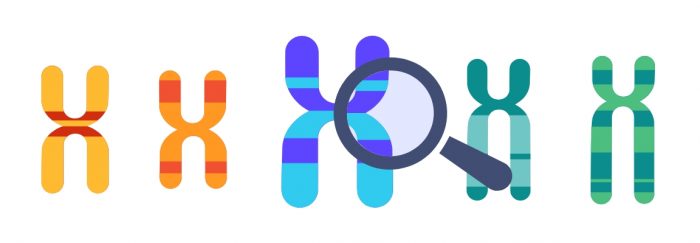The rapid identification of the symptoms of a stroke is crucial to ensure the survival of the maximum number of cells after its onset.
But first, in order to understand it, we must know a little more in detail what happens during a stroke, the causes, the symptoms, and the false myths that have been created about this pathology.

What is a stroke or cerebral infarction?
A stroke or cerebral infarction is the sudden interruption of blood flow in the brain. It is an acute condition that requires urgent medical treatment, as it can compromise cognitive and motor functions. According to the WHO, stroke and myocardial infarction are the leading causes of death from non-communicable diseases in the world.
Response time is a determining factor. It is estimated that, during a stroke, about two million neurons die every minute, so the time of action, together with the location in the brain, will be decisive in the prognosis and recovery of the patient.
What are the symptoms of a stroke?
Due to the importance of medical care in cases of stroke, knowing the symptoms well can help enormously in their early identification. Among the most common symptoms are:
- Sudden loss of strength in arms and legs.
- Loss of sensation in the face, arms or legs on the same side of the body.
- Loss of vision
- Sudden change in speech
- Sudden headache
What are the causes of a stroke?
Knowing the causes and the risk of suffering it is important so that, in case we detect one or more of the symptoms mentioned above, we can act as quickly and efficiently as possible. Among the causes, the following stand out:
- Atherosclerosis: atherosclerosis is a chronic inflammation of the arteries caused by abnormal deposits of cholesterol plaques that narrow their walls, which favors the formation of thrombi in the organism that can travel to the brain and produce tamponade.
- Heart problems: altered heart rhythm (as in atrial fibrillation) may favor the formation of blood clots that can travel to the brain and block the arteries there, causing the stroke.
- Other causes, such as inflammatory diseases, blood diseases or diseases related to blood coagulation, etc.
However, more than one third of strokes are of unknown cause. After the relevant clinical studies, the origin has not been clearly identified.
What are the risk factors for stroke?
- Age: it is more common after the age of 55, after which the risk doubles every two years, although it can occur in younger people.
- Population of origin: it is more common in people of African-American origin, also related to their higher risk of hypertension, diabetes and obesity.
- Sex: it is more common in women, associated with situations such as pregnancy, preeclampsia, use of oral contraceptives and other hormonal therapies.
- Metabolic syndrome: people with hypertension, hypercholesterolemia or diabetes have a 2-3 times higher risk of suffering thrombotic events. Up to 30% of patients who have suffered a stroke had diabetes.
- Unhealthy lifestyle: tobacco and alcohol consumption have been widely associated with an increased risk of stroke.
- Underlying diseases: for example, studies have shown that stroke patients with concomitant COVID19 infection have more severe conditions and higher mortality than those without infection.
Is stroke hereditary and does our genetics influence its development?
The presence of a family history of stroke significantly increases the risk of suffering it. To date, genetic variants associated with an increased thrombotic risk have been identified. The most important of these are known as factor V Leiden and the 20210GA variant of the prothrombin gene.
Factor V Leiden is a pathogenic variant that increases the probability of developing blood clots with a high potential to cause a stroke. While the 20210-G variant of the prothrombin gene can cause imbalance of blood clot formation and therefore also increase the possibility of developing thromboembolism.
In short, by means of a DNA test we can access our genetic information, which can help us enormously to know the risk of suffering a stroke and, therefore, be able to act immediately in the event that we are facing a cerebral infarction.
False myths about stroke
Below are 4 myths that have been disproved by the scientific community.
- It is a degenerative disease -> False, after its stabilization, it does not evolve to neurological deficit.
- It affects older people -> Not always, 1 in 10 cases occurs in people under 60 years of age.
- Always leaves sequelae -> Not always, many affected persons keep their cognitive abilities intact.
- Vaccines are associated with an increased risk of stroke -> False, studies have shown that the administration of vaccines is not associated with an increased risk of stroke.
Finally, we would like to emphasize the importance of acquiring and following a healthy lifestyle, controlling those environmental factors that are negative for our health, as well as knowing our genetic risk by means of a DNA test, which can help us to become aware in order to try to prevent the development of this and other pathologies.



